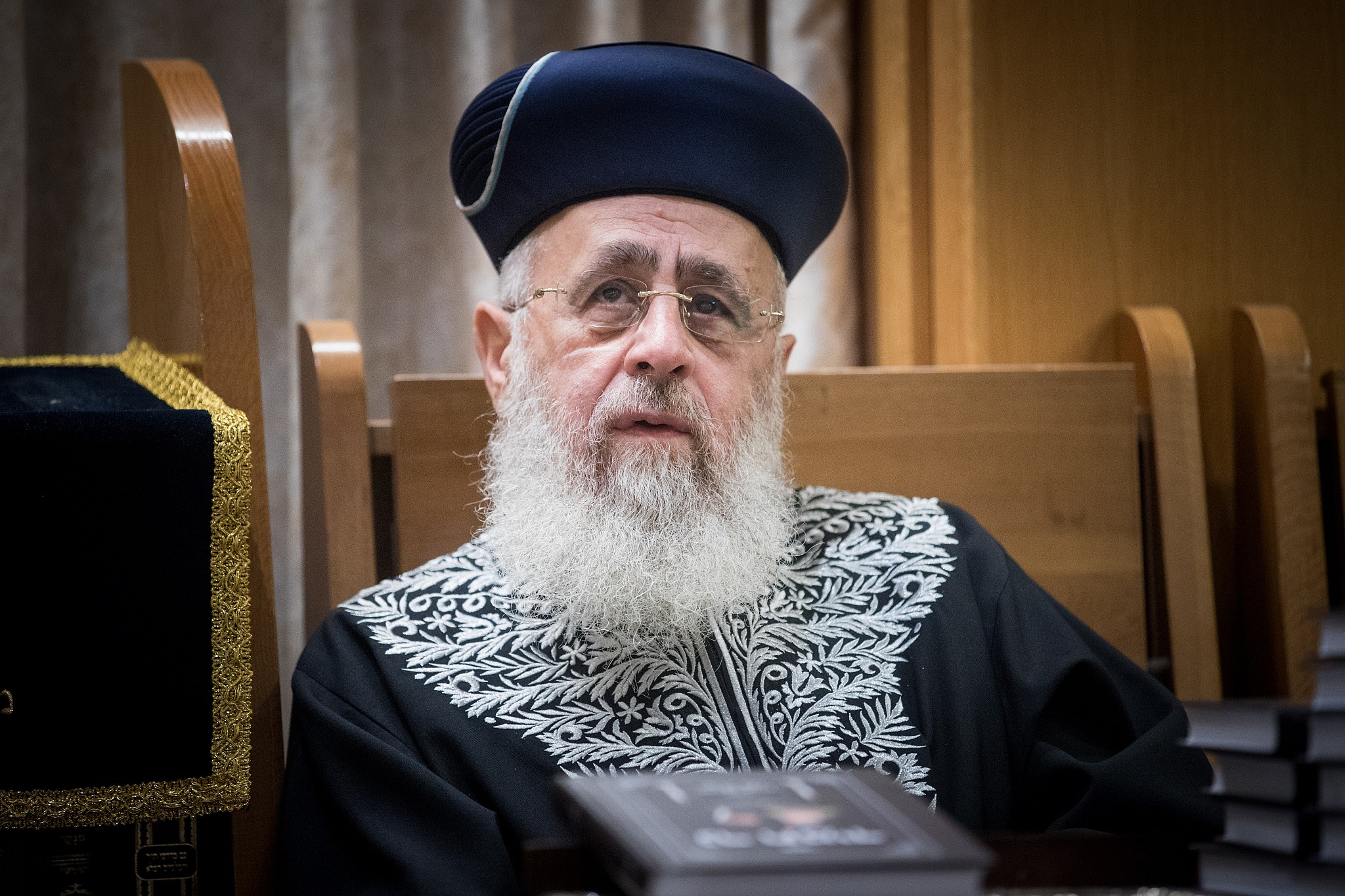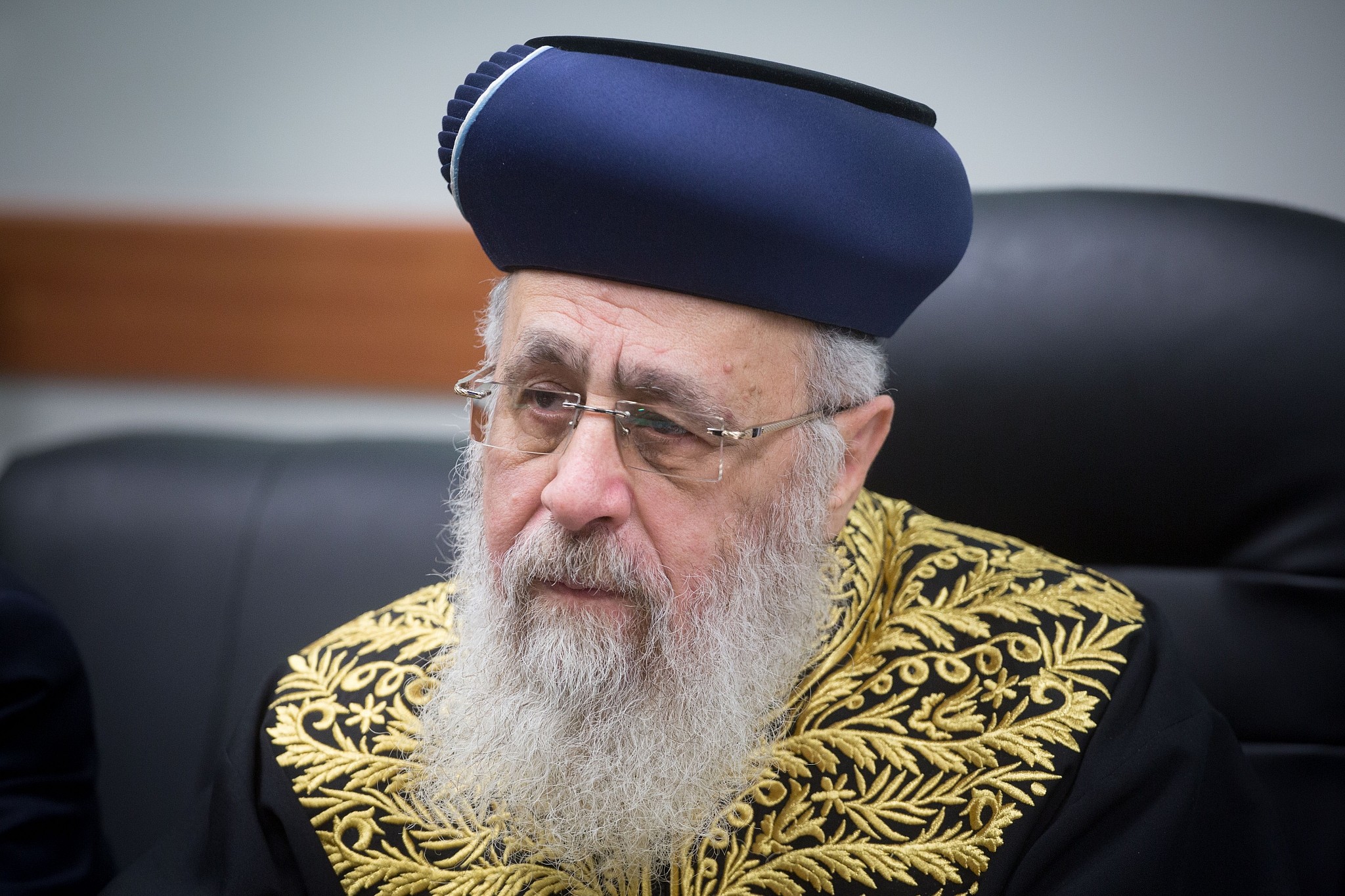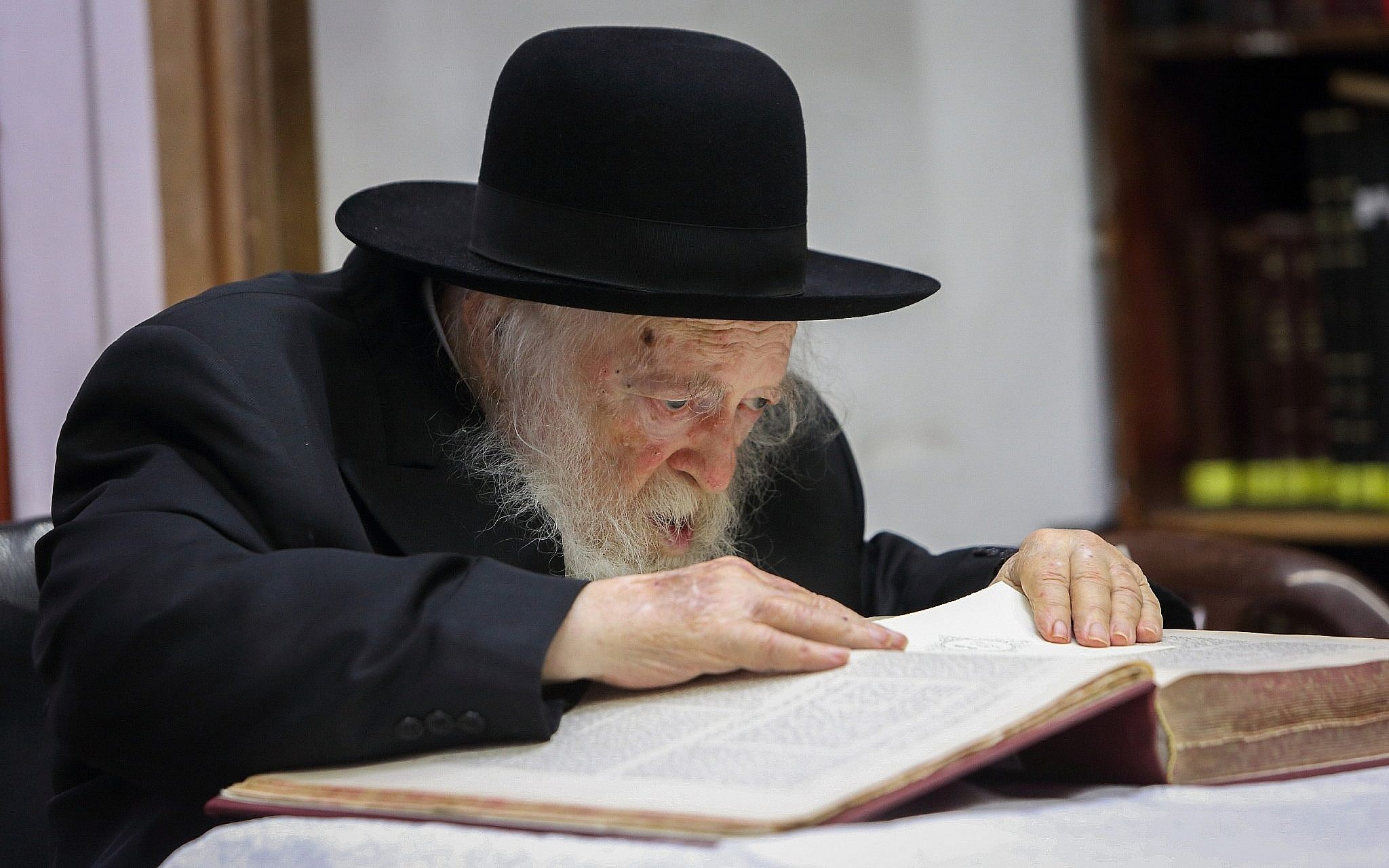Have you ever wondered what it truly means to be a rabbi in our modern world? Perhaps you've heard the name "Rabbi Rob Thomas" and felt a little curious about the kind of work someone with that title might do. It's an interesting question, really, because the role of a rabbi, in some ways, has changed quite a bit over time, yet its core purpose remains very much the same.
So, too it's almost, the title "rabbi" itself is a more recent development in the long, rich history of Jewish tradition. For many, the image of a rabbi might bring to mind a spiritual guide, someone deeply learned, or perhaps a leader of a community. And you know, all of those ideas are certainly part of the picture, but there's a good deal more to it, as we will explore.
This discussion about Rabbi Rob Thomas, then, offers us a chance to explore the vital functions and deep wisdom that such a person brings to a Jewish community. We'll look at the historical roots of rabbinic ordination, or "semicha," and what it truly means for someone like Rabbi Rob Thomas to hold this esteemed position today, serving as a teacher, counselor, and spiritual guide for many. As a matter of fact, it's a role with profound responsibilities.
Table of Contents
- Who is Rabbi Rob Thomas?
- The Foundations of Rabbinic Leadership
- The Many Facets of a Rabbi's Role
- FAQ About Rabbis and Their Role
- Conclusion: The Enduring Impact of Rabbinic Leadership
Who is Rabbi Rob Thomas?
When we talk about Rabbi Rob Thomas, we're talking about a person who embodies the rich tradition of Jewish spiritual and intellectual leadership. While specific details about any individual named Rabbi Rob Thomas might vary, his very existence as a rabbi points to a deep commitment to Jewish life and learning. He, like all rabbis, steps into a role that has been shaped by centuries of history and scholarship.
In some respects, a rabbi like Rob Thomas is a central figure in his community, offering guidance and wisdom. His journey to becoming a rabbi would have involved extensive academic studies, really focusing on the Hebrew Bible and the Talmud. This rigorous preparation allows him to serve as a religious teacher and spiritual leader for a Jewish community or congregation, you know, just like the tradition describes.
So, in a way, Rabbi Rob Thomas represents the contemporary face of an ancient calling. He is someone who has dedicated his life to understanding and sharing Jewish wisdom, guiding others through life's joys and challenges. His presence helps to maintain and strengthen the fabric of Jewish communal life, which is a pretty significant responsibility.
Personal Details and Bio Data of Rabbi Rob Thomas (Illustrative)
| Category | Detail |
|---|---|
| Name | Rabbi Rob Thomas |
| Primary Role | Spiritual Leader, Educator, Community Counselor |
| Area of Expertise | Jewish Law (Halakha), Biblical Studies, Talmudic Thought |
| Community Focus | Congregational Leadership, Adult Education, Youth Engagement |
| Key Responsibilities | Leading services, conducting life cycle events, offering sermons, teaching classes |
| Approach to Leadership | Human-centric, approachable, deeply learned |
The Foundations of Rabbinic Leadership
To really grasp what a rabbi like Rob Thomas does today, it's helpful to look at the history of rabbinic ordination, often called "semicha." This process, which grants the title, has a fascinating past, and it helps us understand the authority and responsibilities a rabbi takes on. Basically, it's a formal recognition of someone's deep learning and qualification to guide a community.
The concept of ordination, in some form, has roots that go back to ancient times, though the specific title "rabbi" and the modern process are more recent developments. What's important to remember is that this isn't just a title; it signifies a profound commitment to Jewish wisdom and a readiness to serve. For instance, in earlier periods, the passing down of authority from teacher to student was a very significant ritual, showing continuity in tradition.
So, when we consider Rabbi Rob Thomas, his ordination connects him to a long line of scholars and leaders. This connection gives him the standing to interpret Jewish law and guide his community, building on centuries of accumulated knowledge. It's a pretty powerful link to the past, really.
A History of Ordination (Semicha)
In order to understand what "rabbi" means today, let's take a look at the history of rabbinic ordination, or semicha. While the title itself is a more recent development, the ordination of Jewish scholars has roots stretching back quite far. Historically, it was a way to pass on authority and knowledge from one generation of sages to the next, which is a rather important aspect.
The formal process of semicha as we know it today, with specific requirements and ceremonies, developed over time. It signifies that a person has completed extensive academic studies of the Hebrew Bible and the Talmud. This rigorous study ensures they are qualified to act as a spiritual leader and religious teacher within a Jewish community or congregation, you know, like Rabbi Rob Thomas.
This historical journey of semicha really shows how seriously Jewish tradition takes the intellectual and spiritual preparation of its leaders. It's not just about learning facts; it's about internalizing a vast body of wisdom and being able to apply it to real-life situations. So, too it's almost, this long history provides the bedrock for the modern rabbinate.
Rabbi vs. Kohein: A Clear Distinction
It's important to make a clear distinction between a rabbi and a priest, or "kohein," in the Jewish sense of the term. A kohein, in Judaism, is a person who traces his lineage back to Aaron, Moses's brother, and has specific ritual duties related to the ancient Temple service. Their role is hereditary and tied to particular religious rituals, which is quite different from a rabbi's function.
A rabbi, on the other hand, has no more authority to perform rituals than any other adult male member of the Jewish community. This is a crucial point, as it highlights the rabbi's role as a teacher and guide, rather than a ritualistic intermediary. A rabbi's authority comes from his knowledge and scholarship, not from a priestly lineage, you know.
So, while a kohein's role is primarily ritualistic and inherited, a rabbi's role is academic and communal. A rabbi is a Jewish scholar, and an expert in one, or even many, areas of Jewish wisdom and thought. This distinction is pretty fundamental to understanding the unique position of a rabbi like Rob Thomas within Judaism, honestly.
The Many Facets of a Rabbi's Role
The role of a rabbi is incredibly multifaceted, encompassing a wide array of responsibilities within a community. A rabbi is, first and foremost, a "moreh," or teacher, which is a very central part of their identity. They lead classes in Hebrew texts, offer sermons interpreting the weekly Torah portion, and help others wrestle with the deeper meanings of Jewish life. This teaching aspect is pretty vital.
Beyond teaching, a rabbi also serves as a spiritual leader, guiding services and conducting life cycle events like weddings, bar/bat mitzvahs, and funerals. They are often a counselor and a role model, providing support and wisdom to individuals and families during significant moments. It's a role that demands both intellectual rigor and deep empathy, honestly.
Today, the role of a rabbi mirrors that of a Protestant minister in some respects, serving the community as an educator, social worker, preacher, and occasionally conducting prayer services. This broad scope means that a rabbi like Rob Thomas touches many aspects of his community's life, offering guidance and support in various capacities. As a matter of fact, it's a truly comprehensive position.
The Rabbi as Teacher (Moreh)
A rabbi is first and foremost a "moreh," or teacher. This teaching responsibility is perhaps the most fundamental aspect of their role. They are deeply learned individuals, qualified by academic studies of the Hebrew Bible and the Talmud, which means they spend years acquiring profound knowledge. This extensive learning allows them to effectively transmit Jewish wisdom to others.
They lead classes in Hebrew texts, offering insights into ancient scriptures and their relevance for today. For instance, a rabbi will often offer sermons, known as "drashot," interpreting the weekly Torah portion, making its lessons accessible and meaningful to congregants. This involves not just explaining the text but also helping people connect it to their own lives, which is a rather important skill.
Moreover, rabbis help others wrestle with the complex questions and challenges of Jewish thought and practice. They guide individuals through difficult passages, clarify nuanced legal points, and inspire a deeper connection to Jewish heritage. So, in a way, the rabbi as a teacher is constantly nurturing the intellectual and spiritual growth of their community, you know.
Spiritual Guidance and Community Connection
The rabbi is the spiritual leader of a Jewish community, and this involves a significant amount of guidance and connection. They are the ones who often lead services, creating a meaningful prayer experience for the congregation. This leadership helps to foster a sense of collective spirituality and shared purpose among community members, which is pretty vital.
Beyond leading prayers, rabbis conduct life cycle events, marking important milestones in people's lives. From welcoming new babies into the covenant to celebrating weddings and offering comfort during times of loss, the rabbi is present at these very personal and significant moments. This involvement builds strong bonds within the community, honestly.
Serving as a counselor and a role model is another crucial part of a rabbi's spiritual guidance. People often turn to their rabbi for advice on personal matters, ethical dilemmas, or spiritual questions. A rabbi like Rob Thomas offers a listening ear and wise counsel, helping individuals navigate the complexities of life through a Jewish lens. So, too it's almost, this personal connection is very much at the heart of their work.
Expert in Jewish Wisdom and Law
A rabbi is a Jewish scholar, and an expert in one, or even many, areas of Jewish wisdom and thought. Their qualification stems from deep academic studies of the Hebrew Bible and the Talmud. This rigorous intellectual training equips them to serve as a religious teacher and spiritual leader for a Jewish community or congregation, a role that demands extensive knowledge.
While one generally must be a rabbi to sit on a "beit din," which is a panel that adjudicates Jewish legal disputes and is present at a conversion, rabbis are not strictly required at other Jewish events. This highlights that their expertise is primarily in the realm of Jewish law and its interpretation, rather than simply officiating ceremonies. For instance, their knowledge is vital for complex legal rulings.
This expertise allows them to provide authoritative guidance on matters of Jewish law, or "halakha." They can answer questions ranging from dietary laws to ethical considerations in modern life, helping individuals and families live according to Jewish tradition. Basically, their deep understanding of the law makes them indispensable resources for their communities, you know.
The Rabbi in Modern Times
Today the role of a rabbi mirrors that of a Protestant minister in several key ways, adapting to the needs of contemporary communities. A rabbi like Rob Thomas serves the community as an educator, which remains a core function. They continue to teach classes, give sermons, and inspire intellectual curiosity about Jewish texts and traditions. This educational aspect is truly timeless.
Furthermore, the modern rabbi often acts as a social worker, addressing the pastoral needs of their congregants. This might involve visiting the sick, comforting the bereaved, or offering support during times of personal crisis. They are a compassionate presence, providing a listening ear and practical assistance when needed, which is a pretty significant part of their service.
While their primary role isn't ritualistic like a kohein, rabbis do conduct prayer services and life cycle events, serving as the public face of their congregation. They are preachers, delivering messages that connect ancient wisdom to current events and personal challenges. Learn more about the role of a rabbi in Judaism by exploring the history, traditions, and responsibilities of rabbis, from ancient times to the present day, it's a fascinating subject. You can also link to this page here for more insights into Jewish communal life.
FAQ About Rabbis and Their Role
What is the main difference between a rabbi and a priest (kohein) in Judaism?
The main difference is that a kohein's role is hereditary and tied to specific ritual duties related to the ancient Temple, while a rabbi's authority comes from academic studies and expertise in Jewish law and thought. A rabbi does not have special authority to perform rituals that other adult Jewish males do not possess. Basically, a kohein is defined by lineage and ritual, while a rabbi is defined by scholarship and teaching, you know.
Are rabbis required at all Jewish events?
While one generally must be a rabbi to sit on a "beit din," a panel that adjudicates Jewish legal disputes and is present at a conversion, rabbis are not strictly required at other Jewish events. Many Jewish ceremonies and gatherings can be led by any knowledgeable member of the community. Their presence is often for guidance, teaching, or spiritual leadership, rather than strict necessity for the event to be valid, honestly.
What kind of studies does a rabbi undertake?
A rabbi undertakes extensive academic studies of the Hebrew Bible and the Talmud. This involves years of rigorous learning, delving into Jewish law, ethics, philosophy, and history. Their education prepares them to be a Jewish scholar, an expert in various areas of Jewish wisdom, and qualified to act as a spiritual leader and religious teacher for a community. It's a very deep and broad course of study, really.
Conclusion: The Enduring Impact of Rabbinic Leadership
As we've explored the role of a rabbi through the lens of a figure like Rabbi Rob Thomas, it becomes clear that this position is far more than just a title. It represents a profound commitment to learning, teaching, and serving a community. From the historical roots of semicha to the multifaceted responsibilities of today, a rabbi truly embodies the spirit of Jewish continuity and wisdom.
A rabbi is a teacher, a spiritual guide, a counselor, and a scholar, deeply immersed in the Hebrew Bible and the Talmud. Their work helps individuals and communities connect with their heritage, navigate life's challenges, and grow spiritually. They are a vital presence, offering guidance and inspiration in an ever-changing world, honestly.
The enduring impact of rabbinic leadership, as exemplified by someone like Rabbi Rob Thomas, lies in its ability to adapt while staying true to core principles. It's about bringing ancient wisdom into modern life, fostering strong communities, and nurturing individual spiritual journeys. Learn more about the role of a rabbi in Judaism on our site, and perhaps consider how these leaders shape the vibrant tapestry of Jewish life today.



Detail Author:
- Name : Devan Weber
- Username : xbogisich
- Email : jaskolski.ottilie@vandervort.org
- Birthdate : 1972-08-15
- Address : 8018 Carmelo Drive Suite 874 Lake Jarenville, MD 94447-2152
- Phone : 1-351-362-9245
- Company : Kozey-Jakubowski
- Job : Art Teacher
- Bio : Cumque voluptatem voluptatem illum suscipit ad placeat. Delectus fuga omnis minus ea est sapiente. Optio autem omnis error voluptatem.
Socials
facebook:
- url : https://facebook.com/ayden1809
- username : ayden1809
- bio : Nostrum impedit quis fugit eaque rerum ea cum incidunt.
- followers : 1464
- following : 2973
linkedin:
- url : https://linkedin.com/in/swaniawskia
- username : swaniawskia
- bio : Odio saepe excepturi est ad.
- followers : 6327
- following : 1080